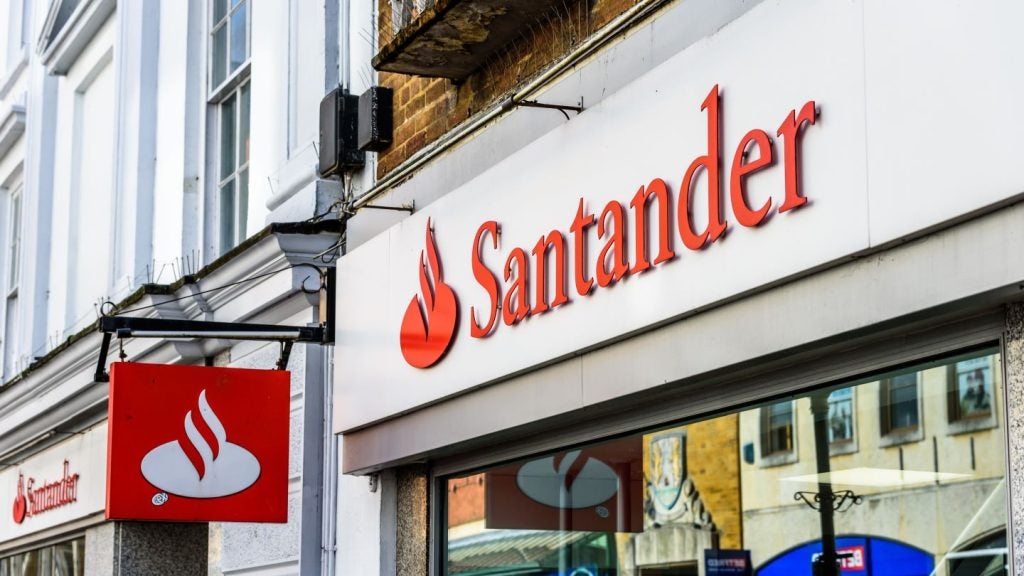
Bank of London and the Middle East has acquired Renaissance Asset Finance, after a credit line deal last year served as an introductory process. Brian Cantwell talks to Fred Yue, director, head of leasing at Bank of London and The Middle East and Hugh Sigrist, managing director at Renaissance Asset Finance
Middle-ticket lender Bank of London and the Middle East (BLME) has entered the small-ticket market by acquiring UK SME lender Renaissance Asset Finance for an undisclosed amount.
BLME’s chief executive Michael Williams, BLME head of corporate banking Jervis Rhodes and director and head of leasing Frederick Yue join Renaissance’s board.
Renaissance is to retain its brand and management team, and maintains its status as a separate legal entity.
Hugh Sigrist will remain as managing director of Renaissance, with his management team of operations director Vikki Fisher, credit and compliance director Mark Lester, and David Pusinelli, non-executive director.
A statement from Renaissance said the board with its new additions, will maintain a strong commercial focus and examine any "additional opportunities, including acquisitions the market may present".
How well do you really know your competitors?
Access the most comprehensive Company Profiles on the market, powered by GlobalData. Save hours of research. Gain competitive edge.

Thank you!
Your download email will arrive shortly
Not ready to buy yet? Download a free sample
We are confident about the unique quality of our Company Profiles. However, we want you to make the most beneficial decision for your business, so we offer a free sample that you can download by submitting the below form
By GlobalDataSigrist said the initial team of six has grown to 17 at the start of 2016 and the business plans to open its northern office in Wilmslow, Cheshire, in the first quarter of the year.
He adds that the Renaissance book of business is currently approaching £60m (76m), with an average deal size of £100,000, and with an average deal range from £10,000 to £2m.
Assets funded include all wheeled asset, plant and machinery, agriculture, commercial audio visual equipment and business-critical soft assets.
BLME surveys the market
Fred Yue, director, head of leasing at Bank of London and the Middle East said the bank had been looking for a move into the SME market for over two years.
"We looked at SME businesses for quite some time," Yue said. "In the end there were over 20 potential businesses that we could acquire, but none of them really fitted our criteria.
"So when Hugh came along with his business plan and the market segments, and the route to market exactly the way we want the small-ticket SME business to be, it stood out.
"Then it was a matter of whether we acquired the business teams straight away, or whether we funded the team."
In August 2014, BLME provided a £35m funding line for Renaissance Asset Finance.
"It was BLME’s initial £35m facility that enabled me and my team to launch Renaissance and achieve all our objectives" said Sigrist.
Yue says: "The way we structured the proposal is that we provided Hugh and his team with a wholesale facility initiative; Hugh had a £35m-plus working capital facility, to go alongside a funding facility.
"We did it this way, as it gives Hugh and his team the focus on the market without having the appearance of us being on top of them, so they could devote the business to its market, and I think that worked out very well.
"They were totally focused on building the business without having been part of a bank hierarchy and everything that goes with that, giving them freedom to establish themselves."
Strengthened reach
Yue says the range in ticket size meant that BLME had strengthened its reach in the market.
"There are not many lending businesses out there in this sector that can cover ticket size from £10,000 to £25m," says Yue. "So our offering is that we’ve got capability between Renaissance and ourselves to offer the market hire purchase and finance operating leases, which is where the strategy of the asset finance business of the bank lies.
"It means there are very few circumstances that Renaissance needs to refer to its parent for approval, because everything is agreed."
"Small-ticket business is all about speed of service to the brokers. And if we didn’t have the credibility agreed upfront, with Renaissance coming into the bank for credit approval, it wouldn’t work, because it’s all about response times."
Confidence
Sigrist says the confidence to do this was secured with the trust developed as Yue and Sigrist worked together, as the credit line was also negotiated in terms of compatibility from Renaissance’s knowledge of the SME market.
"We said we don’t want you to give us a £35m facility, if we can’t actually work it the way we need to work it," says Sigrist.
"We wanted BLME to be happy with what we’ve written with our policies, so they could give us the authority to get on with developing the business."
Yue adds: "By the time we exercised our purchase option, we knew the business, and that it had proven itself. So in terms of integration it makes it that much easier and takes the risk out of acquiring a business.
"In essence, it’s still a stand-alone business with its own authority. So from the outside, when we acquire the business, there shouldn’t be any change, for instance, with name, documents, and processes; it would remain pretty much as is.
Good match
Yue says there are pre-existing asset classes that already have a good match, up and down the ticket range.
"One of the sectors we specialise in is aviation," says Yue. "The aviation market tends to split into two: one at the small-ticket end, and then you get into the corporate jet end.
"So one area of synergy is big-ticket, which covers the corporate jet sector; Renaissance can cover some of the smaller aircrafts and helicopters. We’ve now got full market coverage of specialised sectors.
"The deal is good for the specialist car sector coverage as well: the super cars and the classic cars.
"Between us we can cover those sectors across the middle-ticket transactions. We fund classic cars up to £5m for one car, and that’s also making use of the classic car knowledge of Hugh’s team at Renaissance."
The business negotiated a £1m local underwriting limit with BLME, subject to an agreed credit policy. All operational policies for SMEs have been written by Renaissance directors.
Sigrist says: "By our second trading year we were only expecting to lend £24m, and the original proposition was to create a book of about £100m over five years. We’re now looking to create a book of more like £200m. We’re looking to deal with more clients, more relationships, and to work more closely together.
"We exceeded expectations on what we would be able to seed into the SME market, and so we have renegotiated the top-up facility, which is now over £50m, and again BLME have been really supportive. To develop a business in our marketplace is all about raising the credit lines in tandem with demand from customers."
Renaissance independence
Sigrist is proud of the autonomy that he’s agreed with the parent, which will provide speed of service and flexibility across the market, but has had to work hard to get the corresponding regulatory work done.
"Renaissance will be a separate limited company, which is part of the reason we’ve had a lot more regulatory work, because it requires BLME to obtain the regulatory permissions to have a business which it owns, which trades on an independent basis," says Sigrist.
"So we have to agree all our compliance issues on the basis of our SME operation."
"The marketing is another great example of a real partnership: too often a big company buys a few smaller businesses and then they want to centralise all the marketing and centralise the brand. This often doesn’t work because clients are familiar with a particular brand.
"By keeping the brand intact Fred and I have made sure that Renaissance won’t lose its authority and identity in the market." <







